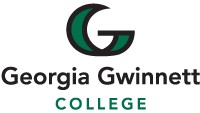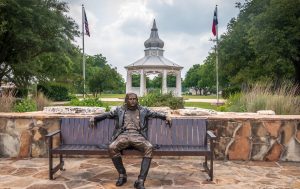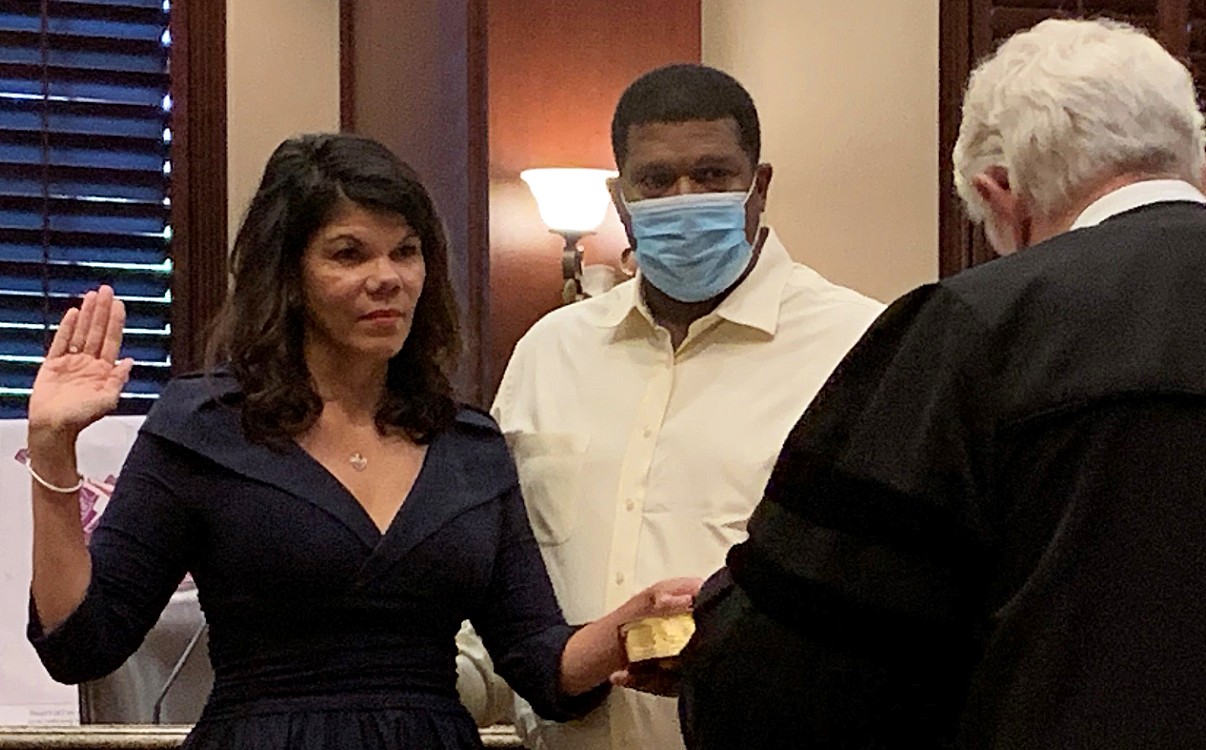GwinnettForum | Number 20.51 July 17, 2020
BEES AT WORK, and note, they are not wearing masks. Roving Photographer Frank Sharp took this close-up with his new iPhone camera at the Anderson Sunflower Farm, located north of Georgia 400 and south of Cumming on Shiloh Road. The farm is at the peak season of sunflower blossoms these days, and makes for a great nearby get-away!
 TODAY’S FOCUS: These “Interesting Times” Remind One of Otto von Bismarck
TODAY’S FOCUS: These “Interesting Times” Remind One of Otto von Bismarck
EEB PERSPECTIVE: It’s Gratifying To See Many High-Quality Political Candidates in 2020
ANOTHER VIEW: White and Blue Collar Jobs May Be Most Scarce in the Future
SPOTLIGHT: PCOM Georgia
FEEDBACK: Liberalism, the Enlighenment, Slavery and Changing Minds
UPCOMING: Pandemic Causes Two Annual Events in Gwinnett To Be Cancelled
NOTABLE: Georgia Gwinnett College Exceeds Fund Drive for Emergencies
RECOMMENDED: The Perfect Wife by J. P. Delaney
GEORGIA TIDBIT: Communicable Disease Center Organized in Atlanta in 1946
MYSTERY PHOTO: This Tombstone Has a Distinct Background and Is Today’s Mystery
These “interesting times” remind one of Otto von Bismarck
By Dick Goodman
SUWANEE, Ga. | In the late 19th century, German chancellor Otto von Bismarck, said, “God takes care of babies, fools, and the United States of America.”
Today, in the 21st century I say, “I sure as heck hope so!”
There are so many things going on, many never-before-experienced in most people’s lifetimes, that it seems like the fulfilment of the ancient curse: “May you live in interesting times.”
Could these days be more “interesting?” Probably, but we’ve already got enough on our plates. For starters we have a deadly pandemic. As a consequence, for many, “lives” have stopped completely. For the rest of us, what passes for “normal” is being sequestered somewhere, bored silly watching the news and waiting anxiously for this to end.
Despite the death of more than 136,000 Americans from the virus, the President, who has consistently minimized the seriousness of the pandemic, apparently because he hasn’t gotten sick, had been focused on Finland, which he thought was part of Russia. Fortunately, he hasn’t yet gotten around to referring to it as an “expletive” country. But he has applied his deep medical knowledge to recommend a medication to treat COVID-19 that could be fatal to many people.
Professional sports events have taken a hit, with a shortened baseball season and the early conclusion of the hockey season. The Stanley Cup playoffs, however, will proceed, sans fans screaming for a player to be beaten to a pulp in the name of sport. The last time the hockey season was cut short was during the “Spanish flu” pandemic of 1918. Since 675,000 Americans had already died of the flu, there was no need to kill more on the ice in the rinks.
Today, with people sequestered at home, airlines around the world are storing unneeded airplanes at airports and deserts, and if things get worse, maybe in people’s driveways. Meanwhile airlines are furloughing tens of thousands of employees, including pilots. However, a recording of a pilot’s reassuring messages of the possibility of “a little turbulence ahead,” will be available online for people needing some kind of reassurance about anything.
To make things more interesting, many businesses were ordered to close, and then allowed to reopen, only to be told to close again. The last we heard Florida was open. Or was it closed?
Meanwhile, here in Georgia, Governor Brian Kemp, after ordering businesses to close as a precaution against the rapidly spreading virus and telling citizens to shelter in place, reversed himself less than two weeks later, while the virus was still raging , and allowed certain “essential” businesses to reopen…salons, barbershops, and, of course, high on the list, bowling alleys. I’m not making this up.
Most people, except essential workers like those in hair or nail salons, have been told to stay home and wear masks if they dare to go out in public, and of course, “social distance” when they are out. But some people, like those who attended the President’s rally in Tulsa, believe that being required to wear a mask is a violation of their Constitutional rights. These people are called hospital patients.
And while all this is going on, demonstrations, peaceful and otherwise, have erupted across the country over police behavior and the rumor that CNN is part of a cabal that plans to take over NASA and construct a rocket. They will then ship all of America’s minorities to colonize the Moon, like Great Britain did in the 18th and 19th-centuries when it “transported” its prison populations to the wilds of Australia.
Of course, the rumor proved to be false. It’s Mars that will be colonized.
- Have a comment? Send to: elliott@brack.net
Good to see many high-quality political candidates in 2020
By Elliott Brack
Editor and Publisher, GwinnettForum
JULY 14, 2020 | Spending a year in graduate school at the University of Iowa, I became a regular reader of the region’s most influential newspaper of that day, The Chicago Tribune. It was a rock-ribbed stalwart Republican newspaper of high quality. With gusto, it covered Chicago and the Midwest.
 It had one feature I remembered when I came back to Georgia to get into newspapering.
It had one feature I remembered when I came back to Georgia to get into newspapering.
The Tribune each day printed its “List of Continuing Objectives” for Chicagoland. So eventually in the Wayne County Press in South Georgia, we produced a similar list. Today we include such a list in each edition of GwinnettForum.
From time to time, as conditions change, we return to the list for editorial discourse.
The very first of these Objectives is “High-quality candidates for elective office in Gwinnett.” Happily, we report that the many of the candidates qualifying for office for election this year, by and large, have been of high quality. That makes us proud of the county, for if you have good quality people seeking office, the long-term result will probably be better government. That’s why we include this objective in our list.
However, let us add: not every candidate who ran for office this year in the primary (and for November in the General Election) is automatically of high quality. In our conversations with 94 candidates so far this year, we have found several, whose names we will not mention, who did not meet the standard we would call “high quality.” When we perceived that a candidate did not meet the high-quality standard, we did not consider endorsing that candidate. We will add, of course, that there were many candidates of high quality who were not endorsed, only because of better candidates in that race.
One negative for 2020: All along this election year, we anticipate there will be a swing to the Democratic Party in many races in Gwinnett. That means that there may be some candidates with a “D” behind their names who would win office, but not because of their high quality, but it would be the swing to the party that won them victory.
The election year 2020 gratifying is in another aspect: we saw many good minority candidates emerge. In a county that is heavily diverse, it is great to see this swing. Not only that, but with the changing electorate, these minority candidates, no matter the party, now have a chance of winning office. That reflects well on Gwinnett.
 In coming issues, you’ll see our Continuing Objectives in each issue. The only change: we’ll always want “High quality candidates” in any election year. But we’ll move that Objective to the bottom of the list.
In coming issues, you’ll see our Continuing Objectives in each issue. The only change: we’ll always want “High quality candidates” in any election year. But we’ll move that Objective to the bottom of the list.
- Move statewide non-partisan judge election runoffs to the General Election.
- MARTA rail for Gwinnett from Doraville station to Gwinnett Arena.
- Banning of tobacco and vaping products in all Gwinnett parks.
- More diverse candidates for appointment to local boards.
- Creative efforts to support the arts in Gwinnett.
- Advancement and expansion of city and Gwinnett historical societies.
- Require establishments that serve alcoholic beverages to halt sales of such products at 2 a.m., and close by 3 a.m.
- Rewrite the rules to require the Georgia Legislature to meet once every two years.
- 21st century salary for the Gwinnett County Commission members.
- High-quality candidates for elective office in Gwinnett.
CORRECTION: We erred when referring to Lawrenceville as the “Wisteria City.” Indeed, the late Louise Cooper promoted Lawrenceville as the “Crepe Myrtle City.” Thanks to Chuck Warbington for catching this.
- Have a comment? Send to: elliott@brack.net
White and blue collar jobs may be most scarce in the future
(Editor’s note: Today we bring you comment from a new contributor, from Neely Young, former owner and publisher of “GeorgiaTrend,” who was also former newspaperman and president at one time of the Georgia Press Association. –eeb)
By Neely Young
MARIETTA, Ga. | This year, in response to the virus, Congress and the President sent checks to all residents in the United States. And there is another proposal to do the same again.
This big idea is not new and has been proposed many times in the past to provide a Universal Basic Income(UBI). One advocate is US billionaire Bill Gross who believes that robots are taking over traditional jobs. Gross says: “Unless we want to enter into extended recession, the government needs to start guaranteeing income for everyone.” Gross doesn’t want to raise taxes for this but just have the Federal Reserve print more money and put it in normal circulation.
French economist Thomas Piketty’s book, Capital in the Twenty-First Century, focuses on wealth and income inequality in Europe and proposes a special tax to addressing the issue. Several countries have instituted the UBI. Finland has the tax and plan as a part of their social system.
The most serious proposal in the United States is in higher circles of both liberal and conservative policymakers comes. One comes from Conservative economist Charles Murray. He has proposed a theory that we should replace the welfare state with this UBI. His idea will give every American citizen over age 21 annual $13,000 in monthly installments. In exchange for the annual grant, all existing transfer payments would go away, including food stamps, housing subsidies, Social Security, Medicare, supplemental security income, agricultural subsidies, free lunches in schools and any and all social services programs including all the government bureaucracies that run these programs.
Such a program would include medical health care benefits at a cost of $3,000, leaving $10,000 in annual income for each year for all adults during their lifetime. People can earn additional income up to $30,000 but the grant would drop to as low as $6,000 when someone earns $60,000 or more.
The notion that everyone should receive a basic monetary grant came from the conservative economist Milton Friedman, who founded the Monetarism Economic Theory. He believed in the virtues of a free market system with minimal government intervention. He was an advisor to Ronald Reagan and Conservative British Prime Minister Margaret Thatcher.
While the UBI at first sounds like another liberal give away, remember, under this idea, all government programs would close down, and the agencies that administer the transfer payments would cease to exist.
The UBI would hope to deal with a coming labor market crisis that will be like no other in history. Both white and blue collar jobs are disappearing at an alarming rate because of the increasing use of technology.
White-collar upper income jobs are at risk as well. Artificial Intelligence (AI) has taken over many professions and computer programs have replaced many workers in accounting, legal and other professions.
As COVID-19 passes, as we all hope, policies designed to move jobs back to our country could make both white and blue collar jobs even scarcer than they are now. A guaranteed income could take away the incentive to find a job. UBI could be a bigger job killer than technology.
- Have a comment? Send to: elliott@brack.net
PCOM Georgia
 The public spiritedness of our sponsors allows us to bring GwinnettForum.com to you at no cost to readers. Established in 2005, PCOM Georgia is a private, not-for-profit, accredited institute of higher education dedicated to the healthcare professions. The Suwanee, Ga., campus is affiliated with Philadelphia College of Osteopathic Medicine which has a storied history as a premier osteopathic medical school. Doctoral degrees in Pharmacy (PharmD), Physical Therapy (PT) and Osteopathic Medicine (DO) are offered at PCOM Georgia. Graduate degrees at the master’s level can be earned in Biomedical Sciences and Physician Assistant (PA) Studies. Emphasizing “a whole person approach to care,” PCOM Georgia focuses on educational excellence, interprofessional education and service to the wider community. To learn more about how PCOM Georgia is shaping the future of health, visit www.pcom.edu or call 678-225-7500.
The public spiritedness of our sponsors allows us to bring GwinnettForum.com to you at no cost to readers. Established in 2005, PCOM Georgia is a private, not-for-profit, accredited institute of higher education dedicated to the healthcare professions. The Suwanee, Ga., campus is affiliated with Philadelphia College of Osteopathic Medicine which has a storied history as a premier osteopathic medical school. Doctoral degrees in Pharmacy (PharmD), Physical Therapy (PT) and Osteopathic Medicine (DO) are offered at PCOM Georgia. Graduate degrees at the master’s level can be earned in Biomedical Sciences and Physician Assistant (PA) Studies. Emphasizing “a whole person approach to care,” PCOM Georgia focuses on educational excellence, interprofessional education and service to the wider community. To learn more about how PCOM Georgia is shaping the future of health, visit www.pcom.edu or call 678-225-7500.
- For a list of other sponsors of this forum, click here.
Liberalism, the Enlightenment, slavery and changing minds
Editor, the Forum:
![]() It’s becoming popular to attack “liberalism” from both the left and the right these days. I find it curious. It’s like marginal improvement in the human condition should be retroactively cancelled for not meeting some future culture test. For most of our history the liberal ideas of the Enlightenment that fueled our great experiment in self-government were accepted dogma by both Conservatives and Progressives.
It’s becoming popular to attack “liberalism” from both the left and the right these days. I find it curious. It’s like marginal improvement in the human condition should be retroactively cancelled for not meeting some future culture test. For most of our history the liberal ideas of the Enlightenment that fueled our great experiment in self-government were accepted dogma by both Conservatives and Progressives.
Everyone is aware of the Original Sin of Slavery that was baked into our Constitution. Perhaps this post-modern thinking believes slavery would have been abolished faster had the American Revolution never happened. It’s interesting to note that slavery was illegal in Georgia from its colonial inception. After its founder, James Oglethorpe (a man of the Enlightenment), died in 1785, that policy was reversed. The Abolitionist movement in the West began in earnest in Great Britain in the late 18th century and the slave trade was abolished in 1807. Would the Crown have imposed that abolition in all of the American colonies? Is it possible that would have happened without the use of force? We’ll never know.
But what of John Locke? As Ashley Herndon noted, the offending Fundamental Constitutions of Carolina by John Locke was written in 1669. The Two Treatises of Government was written in 1689. A person’s thinking can change a lot over 20 years. Mine sure did.
— Theirn (TJ) Scott, Lawrenceville
Send us your thoughts: We encourage you to send us your letters and thoughts on issues raised in GwinnettForum. Please limit comments to 300 words. We reserve the right to edit for clarity and length. Send feedback and letters to: elliott@brack.net
Pandemic causes 2 annual Gwinnett events to be cancelled
Two traditional events in Gwinnett County are being cancelled because of the COVID-19 pandemic.
The Gwinnett County Fair in Lawrenceville has been cancelled for 2020, as has the Atlanta British Car Fayre in Norcross.
The board of directors of the Gwinnett County Fairgrounds Inc. said this week that there would be no 66th annual fair, but are planning to resume the fair in 2021. Besides the midway entertainment, the Gwinnett Fair hosts one of the largest livestock shows in Georgia, and also features the Miss Gwinnett Pageant. That pageant, and the Miss Georgia Pageant, have been cancelled for 2020. Over 188,000 people attended the 10-day Gwinnett County Fair in 2019.
The British Car Fayre, a free event in downtown Norcross for 19 years, attracted 400 vehicle entries last year, and hosted 20,000 visitors. It is the largest British car show in the Southeast. It benefits the Amanda Riley Foundation. Fayre officials are asking past exhibitors and visitors to donate a nominal amount ($10, $15, $20) towards the Fayre in 2020 to be given to the Foundation. To donate, visit www.atlantabritishcarfayre.com.
Two Gwinnett students get bank’s summer internship
Five Atlanta high school students have been elected as Bank of America student leaders and started a paid summer internship. Two of the selectees are from Gwinnett County. They five are:
- Gloria Ampadu-Darko, Norcross, Norcross High School;
- Alaira Blackwell, Atlanta, Booker T. Washington High School;
- Joshua Garrison, Lawrenceville, Gwinnett School of Mathematics Science and Technology;
- Maria Nino-Suastegui, Atlanta, North Atlanta High School; and
- Eduardo Santos, Fayetteville, Whitewater High School.
The students will participate in a collaborative, mentoring-focused project working closely with East Lake Foundation to inform the community about the importance of voting. In addition, student Leaders will engage in conversations focused on social justice, civil rights and how to build a more diverse and inclusive society.
Joshua Garrison, from Lawrenceville, is currently a graduate of Gwinnett School of Mathematics Science and Technology. Joshua volunteers with the Atlanta Union Mission Shepherd’s Inn Homeless Shelter. The organization impacts the community by providing housing, training and medical care to men who are down on their luck. He will be attending Georgia State this fall.
Gloria Ampadu-Darko, is a recent graduate from Norcross High School. In her spare time, Gloria serves as captain of her school step team, president of the school’s African American Leadership Roundtable club, vice president of the school’s DECA club and is involved with the school’s Atlanta Institute for Diplomatic Leadership club. She plans to attend Boston University.
Georgia Gwinnett College exceeds goal for emergencies
Georgia Gwinnett College (GGC) surpassed its goal to raise over $100,000 for its Student Emergency Fund, which provides GGC students with food, gasoline, housing, rent and utilities.
 hristine Rosen, GGC’s executive director of Individual Engagement, said even when there’s not a pandemic, emergency situations often arise that can threaten to derail a student’s education. “That’s where the Student Emergency Fund comes in,” she said. “Some of the most common requests include shelter, groceries and transportation.”
hristine Rosen, GGC’s executive director of Individual Engagement, said even when there’s not a pandemic, emergency situations often arise that can threaten to derail a student’s education. “That’s where the Student Emergency Fund comes in,” she said. “Some of the most common requests include shelter, groceries and transportation.”
The fundraiser attracted 384 donors, surpassing its 300-donor goal, which included faculty, staff, alumni, students as well as the GGC Foundation Board of Trustees (BOT) and GGC’s School of Business Board of Visitors (BOV).
Bartow Morgan, Jr., chair of the GGC Board of Trustees, says: “We have had an outpouring of contributions from the GGC Board of Trustees for the Student Emergency Fund to assist our students who need that hand up during this challenging time. It has been a special honor for the board to support this cause.”
Georgia-based community organizations also donated to the cause, including the Beacon Foundation Charitable Trust, the Greater Atlanta COVID-19 Response and Recovery Fund and the Community Foundation for Northeast Georgia (CFNEG), whose donation in the final hours of the campaign allowed the college to surpass its goal. Although the fundraising campaign has surpassed its goal, donations can still be made any time.
Duluth council names Thomas to replace Carden
The Duluth City Council has appointed Marline Thomas to the council to replace Kirkland Carden, who resigned to run for county commissioner. Her term will end in December 2021.
Ms. Thomas is a native of Puerto Rico. She attended the University of Puerto Rico before joining the U.S. Army, spending 11 years on active duty and was stationed at posts in Korea, Saudi Arabia, and in this country. She holds a BA in Business Administration from the University of Phoenix and a Master’s in Business and Technology from the University of Georgia.
The new council person moved to Duluth in 1998 and has worked in information technology for organizations including McKesson, IHG, Dell, and ABB. In Duluth, she has been a member of the Duluth Zoning Board of Appeals and the Veterans Marker Committee.
She and her husband, Tony, have 5 sons: Erick, Germaine, Chris, Jordan and Quincy.
The Perfect Wife by J. P. Delaney
![]() From Karen Harris, Stone Mountain: Abbie awakens in a state with no memory of who she or how she got in this state. Her husband, Tim, tells her she had a terrible accident five years ago and has been brought back from near non-existence, a miracle of science. Tim is a technological genius renowned for his work in Artificial Intelligence. The couple have a young son who suffers from Heller’s Syndrome, a complex form of autism evolving after several years of normal growth. Hairline cracks become fissures as the issues with their son and lack of intimacy in their marriage undermine the mystery of her being referred to as a perfect wife. J.P Delaney has written a mystery horror story that will appeal to fans of both genres. The unsettling themes will have the reader questioning what it means to be human and how far science can go in seemingly creating human life.
From Karen Harris, Stone Mountain: Abbie awakens in a state with no memory of who she or how she got in this state. Her husband, Tim, tells her she had a terrible accident five years ago and has been brought back from near non-existence, a miracle of science. Tim is a technological genius renowned for his work in Artificial Intelligence. The couple have a young son who suffers from Heller’s Syndrome, a complex form of autism evolving after several years of normal growth. Hairline cracks become fissures as the issues with their son and lack of intimacy in their marriage undermine the mystery of her being referred to as a perfect wife. J.P Delaney has written a mystery horror story that will appeal to fans of both genres. The unsettling themes will have the reader questioning what it means to be human and how far science can go in seemingly creating human life.
An invitation: what b ooks, restaurants, movies or web sites have you enjoyed recently? Send us your recent selection, along with a short paragraph (150 words) as to why you liked this, plus what you plan to visit or read next. Send to: elliott@brack.net
Communicable disease center organized in Atlanta in 1946
The Centers for Disease Control and Prevention (CDC), with headquarters in Atlanta, has been a key factor in combating many of the health issues facing the United States. It is the nation’s premier public health agency, and a unit of the U.S. Department of Health and Human Services.
 After World War II (1941-45), Joseph W. Mountin, a physician and public health leader, formed a plan to convert the Malaria Control in War Areas (MCWA) office to a peacetime agency to monitor and control infectious diseases. CDC was organized as the Communicable Disease Center on July 1, 1946, in Atlanta. Mountin had high hopes for the new institution, which was part of the U.S. Public Health Service.
After World War II (1941-45), Joseph W. Mountin, a physician and public health leader, formed a plan to convert the Malaria Control in War Areas (MCWA) office to a peacetime agency to monitor and control infectious diseases. CDC was organized as the Communicable Disease Center on July 1, 1946, in Atlanta. Mountin had high hopes for the new institution, which was part of the U.S. Public Health Service.
Administrators and directors who have served since the agency’s inception include Raymond A. Vonderlehr (1947-51), Justin M. Andrews (1952-53), Theodore J. Bauer (1953-56), Robert J. Anderson (1956-60), Clarence A. Smith (1960-62), James L. Goddard (1962-66), David J. Sencer (1966-77), William H. Foege (1977-83), James O. Mason (1983-89), William L. Roper (1990-93), David Satcher(1993-98), Jeffrey P. Koplan (1998-2002), Julie L. Gerberding (2002-9), interim director Richard E. Besser (2009), Thomas Frieden (2009-2017), Brenda Fitzgerald (2017-2018), and Robert Redfield (2018- ).
CDC originally had fewer than 400 employees, who were housed in the old MCWA offices in downtown Atlanta. Most of the scientists were entomologists and engineers who had worked for MCWA, which during the war had controlled the spread of malaria in the southeastern states, where most of the U.S. basic military training was done. CDC was established to serve all states and eventually expanded to include all communicable diseases. Over time, CDC became known as a center for training among public health professionals around the world.
In 1949 Dr. Alexander Langmuir came to CDC to head the epidemiology branch. Soon afterward he launched the disease surveillance program to collect, analyze, and disseminate disease data to public health practitioners. The disease surveillance program became an integral part of public health practice and the basis on which CDC’s mission of service to the states was built. In 1951, after the Korean War (1950-53) began, the Epidemic Intelligence Service was created as a two-year postdoctoral program that combined training in epidemiology with service to the states. The threat of biological warfare caused Langmuir to train epidemiologists to watch for intentional threats in addition to protecting the public against natural health threats.
The young agency struggled to survive. Emory University gave CDC land on Clifton Road in 1947 to build its headquarters, but construction did not begin for another decade. Two major health crises in the mid-1950s helped CDC establish its credibility.
When poliomyelitis appeared in children after they received contaminated Salk vaccines, CDC helped to identify the problem and correct it. When the United States was faced with a massive influenza epidemic, CDC gathered data and developed the national guidelines for an influenza vaccine. Other programs that helped CDC grow included the addition of the venereal disease program in 1957, the tuberculosis program in 1960, immunization practices and the Morbidity and Mortality Weekly Report in 1961, and the Foreign Quarantine Service in 1967.
In addition to new responsibilities, CDC was intimately involved in one of the greatest achievements in public health: the eradication of smallpox. In 1962 CDC established the smallpox surveillance unit and tested the newly developed jet gun and vaccine. The agency refined mass vaccination techniques and used a “surveillance and containment” strategy to effect eradication. Under the auspices of the World Health Organization global team, which included hundreds of CDC staff, the smallpox virus was eliminated globally by 1977.
CDC remains committed to achieving its vision of healthy people in a healthy world through prevention.
- To view the Georgia Encyclopedia article online, go to http://georgiaencyclopedia.org
Tombstone has a distinct background and is today’s mystery
This looks like an ordinary but lonely tombstone, but the information has been blurred. Use the clues to determine where this tombstone is located and learn the story behind what is a unique tombstone.
Be alert: there are more clues in this photo than you might think. Tell us where this tombstone is located by sending your idea to elliott@brack.net, including your hometown.
 Fran Worrell, Lawrenceville recognized the most recent mystery photo, sending in this information: “The mystery photo — a life-size rendition of James Butler Hickock (better known as ‘Wild Bill Hickock’) – is located in historic downtown Boerne, Texas in Town Square Plaza. ‘Wild Bill’ was sculpted by local artist Erik Christianson. Boerne (pronounced ‘Bernie’) is located in the Texas Hill Country, just a few miles north of San Antonio. Settled in 1849 by German immigrants, Boerne (population ~18,000) is the county seat of Kendall County, Texas, and is a charming and historic town offering everything from antique stores and art galleries to hiking trails and parks.” The photo came from Allan Peel of San Antonio, Tex.
Fran Worrell, Lawrenceville recognized the most recent mystery photo, sending in this information: “The mystery photo — a life-size rendition of James Butler Hickock (better known as ‘Wild Bill Hickock’) – is located in historic downtown Boerne, Texas in Town Square Plaza. ‘Wild Bill’ was sculpted by local artist Erik Christianson. Boerne (pronounced ‘Bernie’) is located in the Texas Hill Country, just a few miles north of San Antonio. Settled in 1849 by German immigrants, Boerne (population ~18,000) is the county seat of Kendall County, Texas, and is a charming and historic town offering everything from antique stores and art galleries to hiking trails and parks.” The photo came from Allan Peel of San Antonio, Tex.
Susan McBrayer, Sugar Hill, told us: “You were right. Easy mystery, with clues such as the Texas flag and sheriff’s badge. I like photos with clues.” Lou Camerio of Lilburn and George Graf of Palmyra, Va. recognized this mystery, too. Graf writes: ‘James Butler Hickok (1837-1876), better known as Wild Bill Hickok, was a folk hero of the American Old West. His skills as a gunfighter and scout, along with his reputation as a lawman, provided the basis for his fame, although some of his exploits are fictionalized.
“The statue shows him wearing a shirt, vest (with badge), and jacket. He is sporting pistols on both hips with the butts facing outwards. He is wearing pants and knee high boots. His hair is shoulder length. He is sporting a large mustache. Main Plaza is in the heart of Boerne and serves as the site of numerous festivals, concerts, car shows, and celebrations. The park features a gazebo, which serves as a location for weddings and concerts.”
GwinnettForum is provided to you at no charge every Tuesday and Friday.
Meet our team
- Editor and publisher: Elliott Brack, 770-840-1003
- Managing editor: Betsy Brack
- Roving photographer: Frank Sharp
- Contributing columnist: Jack Bernard
- Contributing columnist: Debra Houston
- Contributing columnist: George Wilson
More
- Location: We are located in Suite 225, 40 Technology Park, Peachtree Corners, Ga. 30092.
- Work with us: If you would like to serve as an underwriter, click here to learn more.
Subscriptions to GwinnettForum are free.
- Click to subscribe.
- Unsubscribe. We hope you’ll keep receiving the great news and information from GwinnettForum, but if you need to unsubscribe, go to this page and unsubscribe in the appropriate box.
© 2020, Gwinnett Forum.com. Gwinnett Forum is an online community commentary for exploring pragmatic and sensible social, political and economic approaches to improve life in Gwinnett County, Ga. USA.















Follow Us